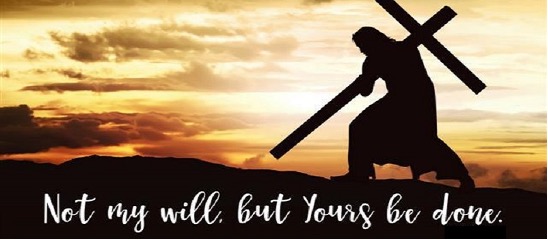
21 Apr The Moment of Surrender: Easter Week Reflections
Today is the day after Easter, or what has historically been referred to as Easter Monday. Despite what many lament as a decrease of influence by the church and faith in general, this remains a holiday for many in schools and workplaces. For us pastors and others who are active working for the church, it is simply a day to catch our breath.
Personally, I have also been using today as a day of reflection. As I look back on Easter and the entire Holy or Passion week narrative, the theme of surrender remains a prominent one for me. This is likely in part because at my core I tend to be competitive and even enjoy conflict, so I see surrender as giving up, being a wimp, etc. As a 7 with a strong 8 wing on the Enneagram, I just like receiving attention. Period.
Good attention is preferred; bad attention is just fine.
Just don’t ignore me.
Therefore, part of my “hug your cactus” journey is to resist that temptation to seek attention at any cost. This brings me back to the topic of surrender. As much as I naturally dislike the concept, heck even the word, the Easter story reminds me of my need to surrender.
In the hug your cactus journey we understand this to be the invitation from Jesus to “die to self” or “ego.”
You cannot die to self without a willingness to surrender, surrendering your own desire and will for the sake of others. In the Holy Week story this is most profoundly seen when Jesus was in the garden the night of his arrest and betrayal. He knows what is coming, going to the cross, taking on the sin of the world and he is asking the Father for a plan “b,” if there is another way to accomplish this, he is ready to hear it. This amazing exchange shows the humanity of Jesus. He is God, he can make it all go away, no one can take his life, he must give it away. So, what does he do? He surrenders his will, saying,
“Father, if you are willing, remove this cup from me. Nevertheless, not my will, but yours, be done” (Luke 22:42).
Jesus surrenders his will to death, even death on a cross. Yes, on Easter Sunday he will rise again, but this does not minimize the pain and suffering of the cross, this does not minimize the physical beatings he took, the agony of taking on the sins of the world, a pain that caused him to echo in agony the words of David, “my God my God why have you forsaken me (Mark 15:34)?!” This serves as a powerful reminder as to why people, in general, and me specifically, don’t like to surrender. Surrender is hard, surrender is admitting you can’t do it yourself, or that you might be wrong.

My favorite rock star, theologian and to be honest man-crush, Bono, ironically named his own autobiography, Surrender. In this book there is a chapter called “Moment of Surrender,” each chapter of the book is named for one of the band’s songs. In this chapter he unpacks the idea of surrender, and two insights really speak to this idea of surrender as related to the Easter story. Concerning letting go he says,
“The moment of surrender is the moment you choose to lose control of your life, the split second of powerlessness where you trust that some kind of “higher power” better be in charge, because you certainly are not” (p. 541).
Here, he is echoing the wisdom of recovery and the 12 Steps, that begin with an admission that you are powerless over something by yourself; namely, that you need help. Even Jesus recognized in his limitations as a human, that he needed help from the Father.
So, how much more do you and I need to admit our own need for help? How much more do we need to accept that we better not be in charge (because if we are we are doomed)?
Bono also takes a posture towards surrender that I had not considered before:
“Maybe I am discovering that surrender does not have to always follow defeat and maybe all the fuller after victory. When you’ve won the argument and now understand you never needed to have. The argument with your life that’s no longer necessary” (p. 545).
This is powerful, because it gets to the should I, instead of the can I question? In my own life I have had my own share of hollow victories. To win only to discover how much that win cost me. For me, dying to self or hugging my cactus has come to mean this simple truth:
The “win” isn’t worth it, because I am fighting a battle that isn’t mine to fight in the first place.
I need to remember and practice this kind of surrender. Jesus went to the cross and rose again, the victory is his. He surrendered and came out victorious. So, today I continue to wrestle with what is too often holding me back from surrendering myself and claiming the victory He has already won, as Bono cleverly reminds us at the end of another of his song’s, “Sunday, Bloody Sunday.”


No Comments